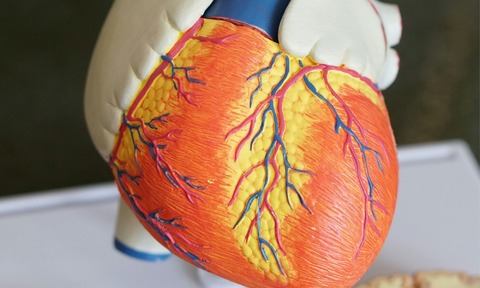Protein test 'for a fiver' may quadruple accuracy of heart risk prediction
12 Apr 2025

Basic £5 blood tests for a single protein could more accurately predict a person's risk of heart attacks and strokes, according to research funded by the British Heart Foundation.
The study published in the Journal of the American College of Cardiology has highlighted that people with higher levels of troponin in their blood are at greater risk of a heart attack or stroke within 10 years.
The protein is present in heart muscle cells and released into the blood when the heart is damaged.
Troponin blood tests are already used in hospitals to diagnose heart attacks can be employed alongside routine cholesterol tests at GP surgeries to detect silent ongoing damage to the heart, an indicator future risk of cardiovascular disease, says the report.
Cardiovascular health assessments currently use an algorithm to predict individuals’ likelihood of heart attack or stroke in the next 10 years based on their risk factors, including cholesterol levels.
Adding troponin tests enabled the algorithm’s predictions to quadruple accuracy levels achieved by adding cholesterol results alone, stated the researchers.
Modelling suggested that doing so would prevent one heart attack or stroke for roughly every 500 people tested, in the case of people currently found to be at intermediate risk on routine cardiovascular health assessments.
The study analysed anonymised health data for more than 62,000 people from 15 studies in Europe and North America. Each person had their troponin levels measured, as well as conventional risk factors such as age, blood pressure, history of diabetes, smoking status and cholesterol levels. Participants were then tracked for around 10 years to see if they had a heart attack or stroke.
The troponin test was especially effective at spotting danger in the 35 per cent of people currently assessed and found to be at intermediate risk of cardiovascular problems, revealed the modelling.
Dependent on age, those with 2.5 –15 % chance of having a heart attack or stroke within 10 years are classed as intermediate risk – insufficiently high to justify preventative treatment.
Inclusion of the troponin tests resulted in up to 8% of people originally classified as intermediate risk being categorised as high risk.
BHF chief scientific and medical officer Professor Bryan Williams said the new data suggested that adding the blood test to current risk prediction models could help identify more people at higher risk.
“Developments in risk prediction have helped doctors to build effective algorithms that can spot those most at risk of heart attacks and strokes. But, with around 100,000 hospital admissions for heart attacks alone in the UK each year, it’s clear that there is still plenty of room for improvement,” he added.
Pic: Robina Weermeijer

